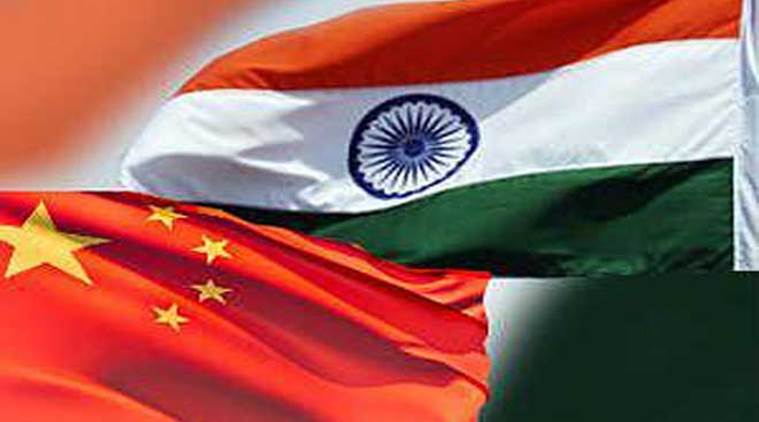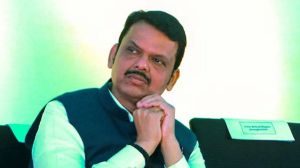A day before National Security Advisor (NSA) Ajit Doval leaves for Beijing to attend the BRICS NSAs’ meeting on July 27-28, Chinese Foreign Minister Wang Yi stepped into the border standoff at Doklam, saying that India should “conscientiously withdraw” its troops. Though Doval’s counterpart, Chinese State Councillor Yang Jiechi, outranks Wang in China’s official establishment, the Foreign Minister’s remarks is being seen in New Delhi as an “escalation in messaging”.
This comes a day after the Chinese Defence Ministry ratcheted up the rhetoric as it urged India to “abandon impractical illusions” and warned that it would step up troop deployment and training at the India-China border if Indian troops were not withdrawn immediately.

Interestingly, Wang’s comments were posted in Mandarin on the Chinese language website of China’s Foreign Ministry, and not on the English language website.
Story continues below this ad
“The rights and wrongs are very clear and even senior Indian officials have openly stated that Chinese troops did not step into Indian territory,” Wang said in Bangkok, commenting for the first time on the standoff at the trijunction point, where Indian troops have been facing off with People’s Liberation Army (PLA) troops for over a month now.
“To make it brief, India has admitted that they have entered Chinese territory. The solution to this issue is very simple: conscientiously withdraw,” he said in a brief quote posted on the Chinese Foreign Ministry’s website on Tuesday.
Read: Two perspectives on Doklam standoff. Click here.
Last week, External Affairs Minister Sushma Swaraj had proposed that the two sides should withdraw their armies and engage in a conversation. Ruling out unilateral withdrawal by Indian troops, Swaraj — while answering questions in Rajya Sabha last Thursday — had said, “If China unilaterally changes the status quo of the trijunction point, then that is a direct challenge to our security. Their demand is that we should withdraw our troops from there. We want that, if we are having a conversation, if we want to have talks, then both should withdraw their armies. From our side, there is no unreasonable demand.”
That was the first time the government publicly articulated its demand for mutual withdrawal.
Story continues below this ad
Doval, who is likely to leave for Beijing on Wednesday, will meet Chinese State Councillor Yang Jiechi. Both sides have not ruled out the possibility of a bilateral meeting so far, although there has been no public announcement of a scheduled meeting.
The Indian side, which has maintained that New Delhi is committed to working with Beijing to find a peaceful resolution through dialogue, is willing to have a conversation — if China wants. Sources said the attempt will be to resolve the situation through bilateral talks, and not let the issue cast a shadow on the upcoming BRICS summit.
Doval’s scheduled visit has evoked a mixed response from state-run media in China. While the Communist Party of China-controlled Global Times dubbed Doval a “main schemer” of the current standoff, the government-run China Daily suggested India and China should explore ways to avoid confrontation and settle the issue peacefully.
In a related development, China has taken objection to Australian Foreign Minister Julie Bishop’s comments that this is a “long-term dispute” and territorial disputes should be resolved peacefully. The Chinese Foreign Ministry is learnt to have conveyed its position to the Australian government through diplomatic channels.
Story continues below this ad
Responding to questions, the Chinese Foreign Ministry spokesperson, Lu Kang, told the media in Beijing on Monday: “I have noted relevant reports made by the Indian press. First of all, I want to point out that what Ms. Bishop said about peacefully resolving territorial disputes as a principle is true, but I must add that what she said is not applicable to what is happening in Donglang, because there is no territorial dispute there. The Sikkim section of the China-India boundary is long-defined, a fact recognised and maintained by the two sides for 127 years without any dispute. The nature of this incident is that Indian border troops illegally crossed the already delimited Sikkim section of the China-India boundary into Chinese territory, which is essentially different from the past frictions between the two sides in sections that are yet to be delimited.
“China wants peace and stability in the China-India border areas, but make no mistake, that does not mean we will compromise in any way on the issue of territorial sovereignty. The responsibility for this incident is solely on India’s side. We once again urge India to get a clear picture of the situation and take measures as soon as possible to avoid further escalating the situation.”
Meanwhile, following India’s recent announcement on launching an anti-dumping investigation over photovoltaic cells and units imported from China, Taiwan and Malaysia, the Chinese Ministry of Commerce said on Tuesday that India should avoid abusing trade remedy measures.

 India-China Sikkim standoff: The Sikkim section has a special historical background and this is the only defined boundary between China and India, said Chinese Foreign Ministry spokesman Geng Shuang
India-China Sikkim standoff: The Sikkim section has a special historical background and this is the only defined boundary between China and India, said Chinese Foreign Ministry spokesman Geng Shuang






